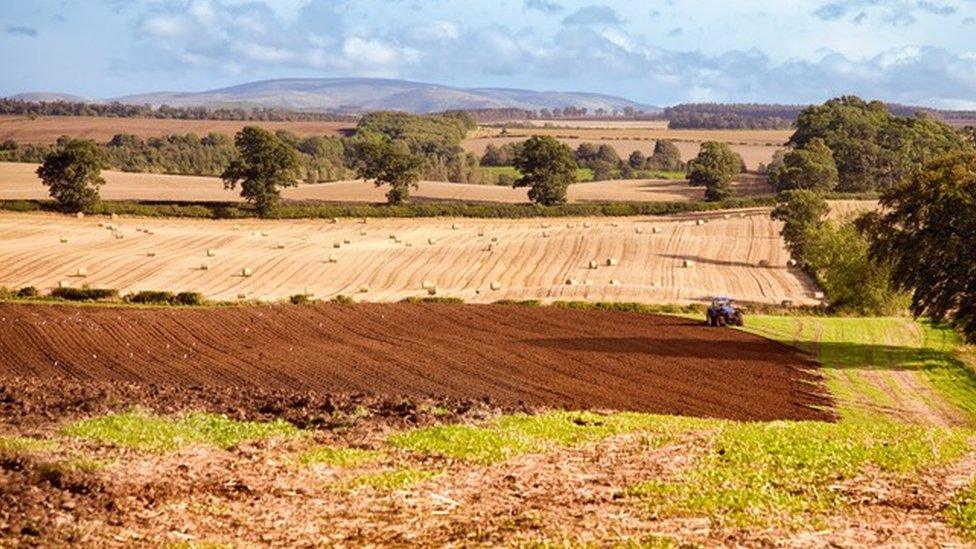Farmers 'should think more like pilots' for safety, say researchers
- Published
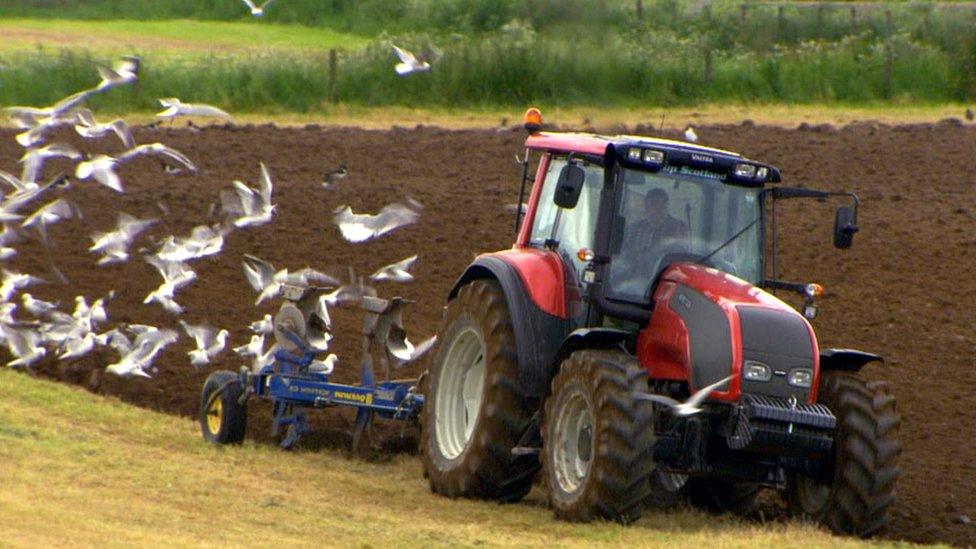
Tractor safety is seen as key
Farmers should start thinking like pilots in order to improve safety in the industry, researchers have said.
Recent statistics showed that workers in agriculture were seven times more likely to die than those on a construction site.
After five years of research with farmers, University of Aberdeen psychologist Dr Amy Irwin said lessons could be learned from other industries.
She said changing a few key behaviours could make farming safer.
Check-list suggestions include surroundings - such as being aware of the location of power lines - and tractor safety measures, as well as having a first aid kit.
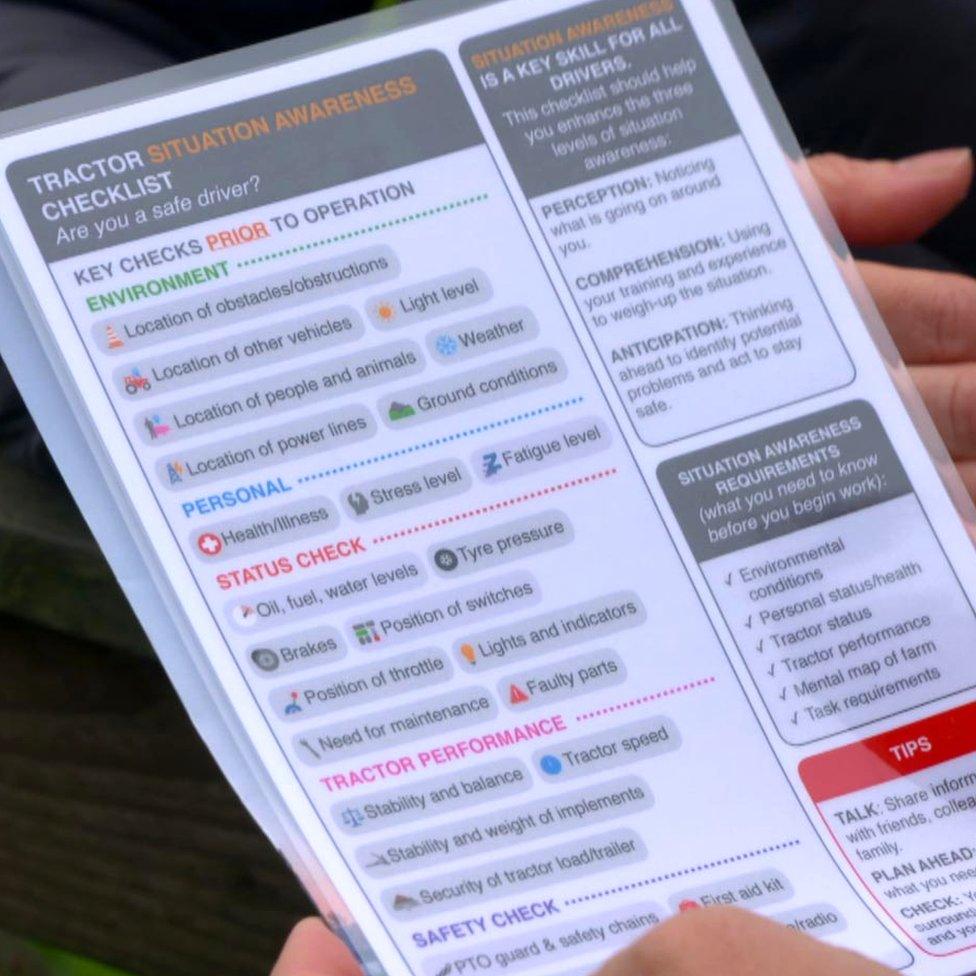
A check-list has been devised

A number of aviation accidents in the 1970s led to researchers noting that while pilots were fully-trained and competent to fly, they could become complacent, or distracted, and make poor decisions as a result.
Dr Irwin said of farming: "Most of the accidents involve things like being entangled in machinery, knocked over by a vehicle, trampled by a cow, and so it's a really hazardous industry to be part of."
She believes a lead can be taken from other industries - aviation being deemed as the key one - to have an understanding of how areas such as teamwork, leadership and situation awareness can be crucial.
Dr Irwin cited paramedics and surgeons as other professions using similar techniques including check-lists.
She said: "In aviation and a lot of other high-risk industries they have training for all of these skills, farming has nothing, and we're looking to change that.
"So by just changing a few behaviours, we can hopefully make farmers safer, and more effective."
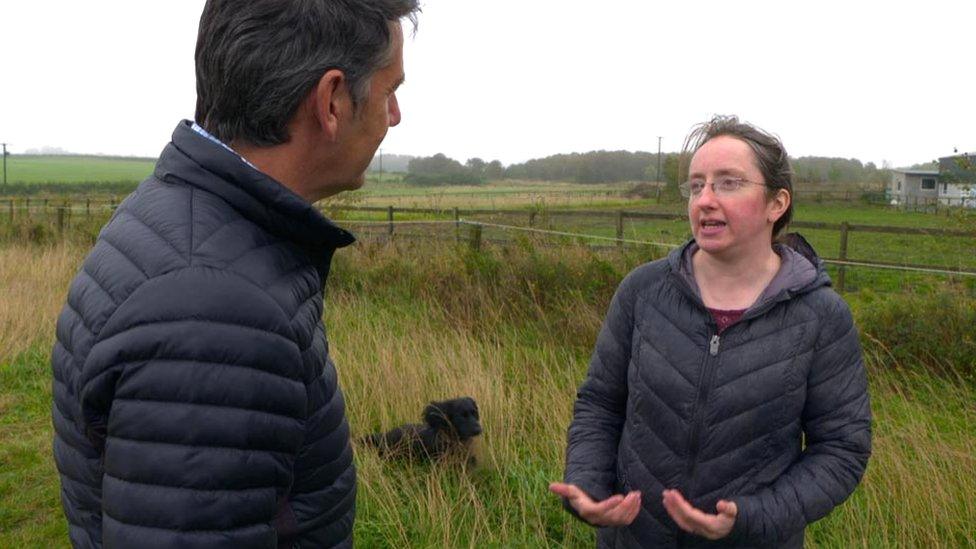
Dr Amy Irwin told Landward's Dougie Vipond about the research
The psychologist explained: "We're conducting research with farmers, finding out more about what they do on a daily basis, finding out what are the issues that might arise that might make things unsafe, then we're taking our research findings and turning them into practical tools, things like check-lists and we've got a new pocket guide for farmers.
"Essentially it's about all the things both within the tractor cab and external to the tractor cab that a farmer has to be aware of.
"Farmers, they're a sort of a hardy bunch, they tend to continue even if they're feeling tired or whatever.
"So an important element of this is also checking yourself, checking how stressed you are, how fatigued or tired you're feeling, and how that might influence your safety operating this heavy machine."
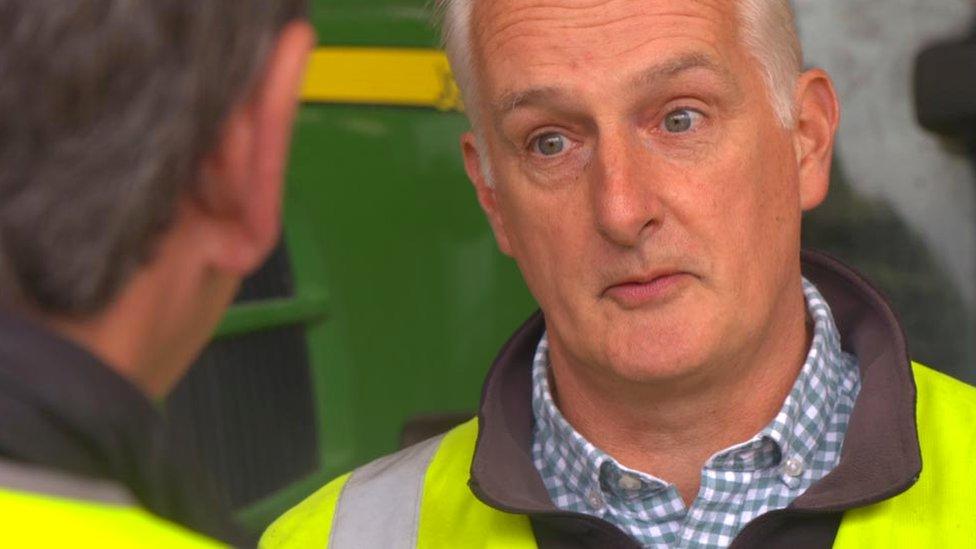
Farmer Peter Robertson said safety was already high on his agenda
On a farm near Peterhead, Peter Robertson said safety was already a priority. He runs a mixed farm with two members of staff.
He believes practical measures include making sure vehicle windows are clean, and lights are working.
'Be the best'
He said of the check-list: "I think it's great. We've had it for the last fortnight - and think that the staff we have working on the farm do these checks anyway.
"I think they're doing them unconsciously, but the good thing about this it firmly puts it down there, it's very grounded, and it just gives them another tool to keep the health and safety element and keep it sort of vibrant in the farm.
"It's just part and parcel of what we do, there's a couple of local accidents where people were killed and we decided that was to do with visibility, so we now every day wear hi-vis vests on the farm, and it works, it's an easy thing to do."
Mr Robertson added: "I really like it and it's something that we're going to use a lot I would say on the farm.
"I think it's a great opportunity for the agricultural industry to move on and look at safety in a different way and see if the industry can improve its health and safety record to be not the worst, to be the best."
You can see this story on Landward on BBC One Scotland on Monday at 19:30, as well as on the iPlayer.
- Published16 November 2018
